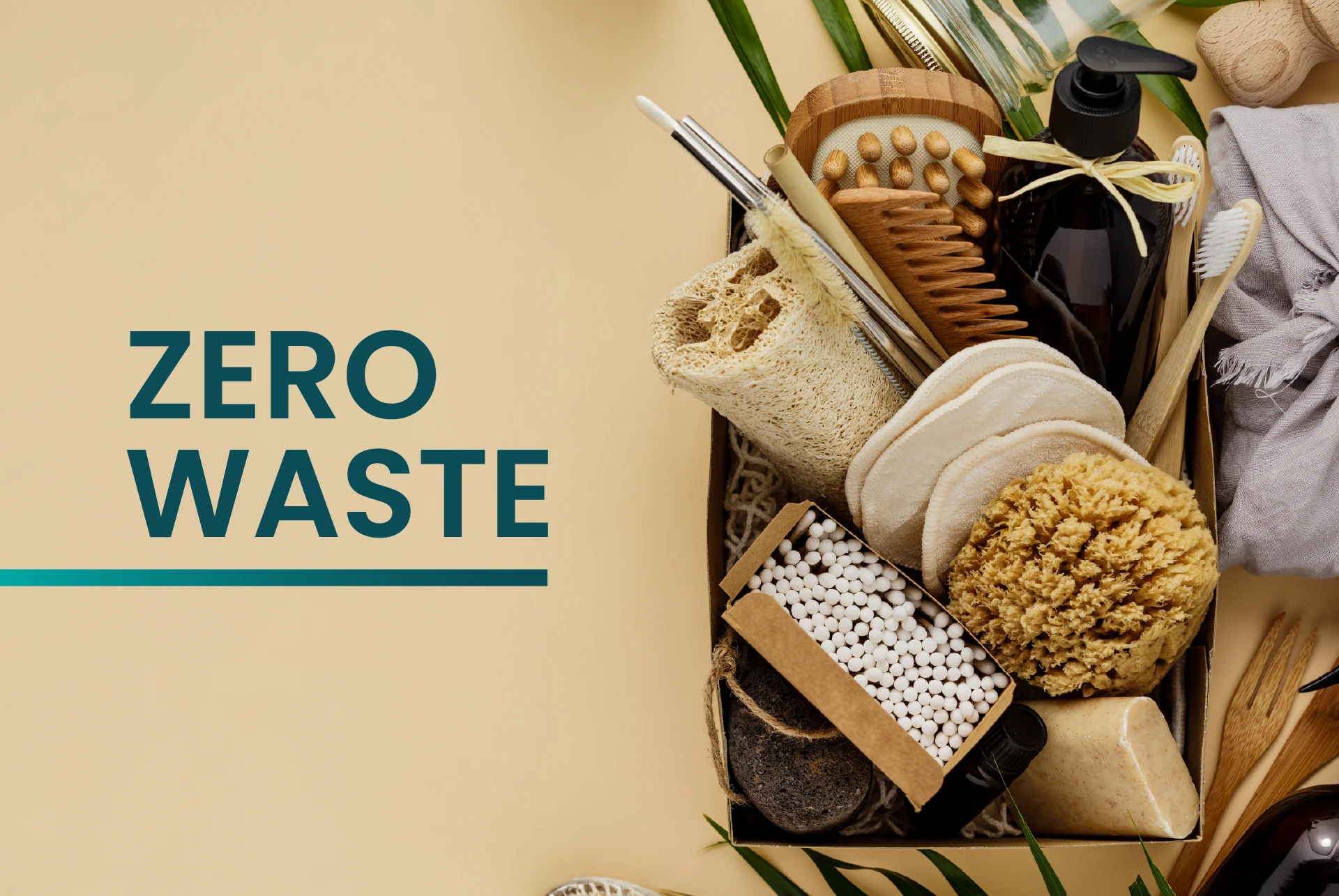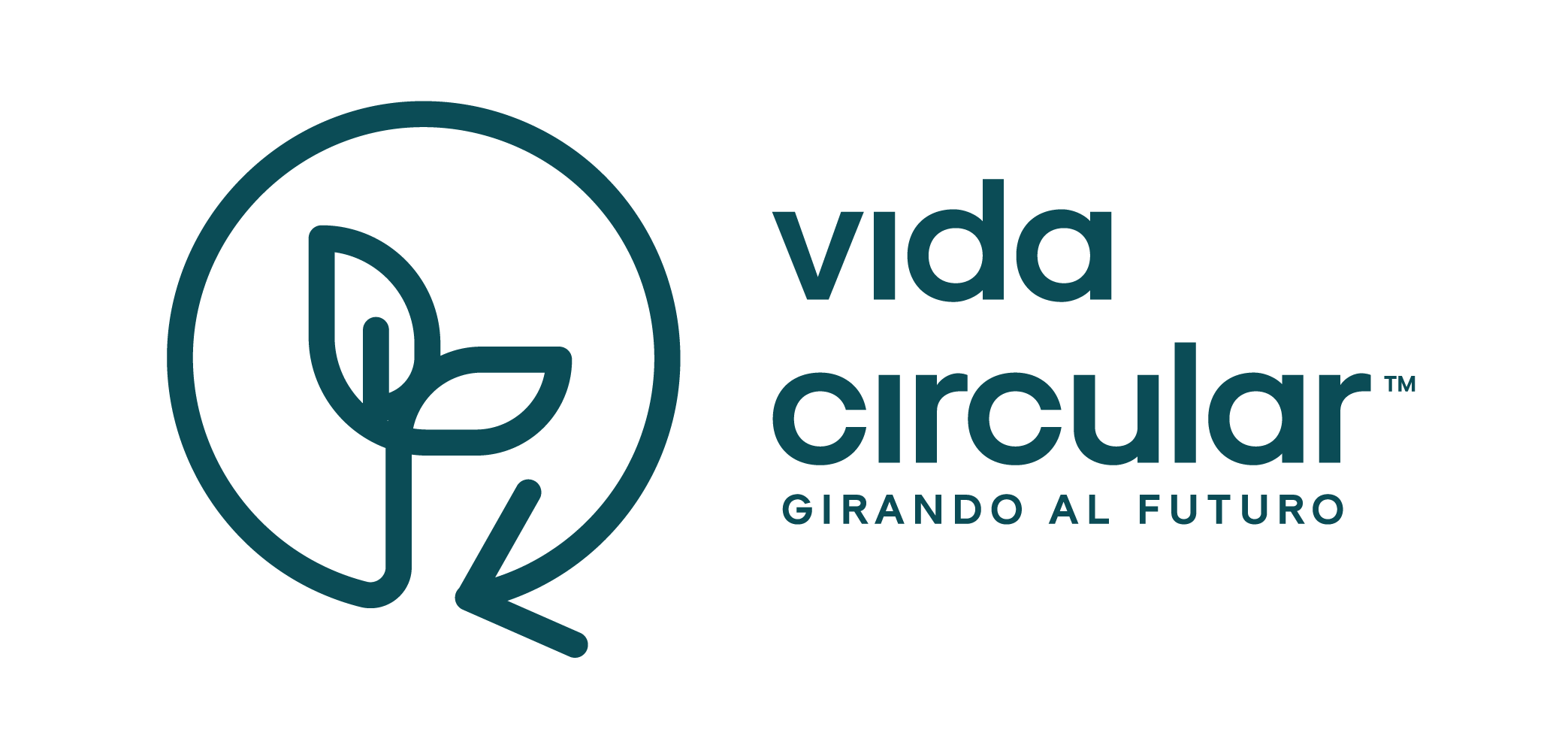
Zero Waste: More than a trend, a sustainable lifestyle
Zero Waste is a way of living that seeks to generate as little waste as possible. The idea is to make the most of resources and prevent them from ending up in the trash or polluting the planet. According to the Zero Waste International Alliance (ZWIA), this means producing, consuming, reusing and recycling responsibly, without burning or throwing waste into the soil, water or air, in order to protect the environment and our health.
In short, zero waste means that everything we use should be reusable, recyclable or biodegradable, without the need to incinerate it or send it to a landfill. This leads us to change the way we consume and produce, opting for a more sustainable model based on the Circular Economy.
Why is Zero Waste important?
Because it helps us reduce pollution, take care of natural resources and build a more sustainable future. Think about this: every time we throw something in the trash, that waste has to go somewhere. If it ends up in a landfill, it can take years, decades or even centuries to degrade. If it is incinerated, it releases toxic gases that pollute the air and contribute to climate change. And if it reaches rivers, seas or forests, it can affect animal life and the balance of ecosystems.
In addition, manufacturing new products from scratch requires extracting resources such as water, minerals or oil, which has a huge environmental impact. If we reuse, recycle or compost instead, we avoid wasting valuable materials and reduce the need to continue extracting more resources from the planet.
In short, Zero Waste helps us reduce environmental damage, take care of what we already have and make smarter use of resources. It's a simple but powerful way to do our bit to combat climate change and build a cleaner, more balanced world.

The five R's of zero waste
If we want to generate less waste and live more sustainably, there are five basic principles that we can apply in our daily lives. They are the Five Rs, and they work as a guide to make better decisions about what we consume and discard.
1.- Reject: It is about saying no to what we don't need. Many times we accept things out of habit: plastic bags, printed advertising, unnecessary packaging... All that ends up becoming garbage. The idea is to be more selective and avoid products that will only generate waste.
Reduce: Here the objective is to consume less and in a more conscious way. Before buying something, ask ourselves: Do I really need it? We often accumulate things that we use little or nothing, and that means more waste and more environmental impact. Opting for the essentials helps us save money and take care of the planet.
3. Reuse: Instead of throwing away, let's look for ways to give more life to what we already have. Use reusable bottles instead of disposable ones, take our own bags to the supermarket, repair instead of throwing away... There are a thousand ways to make things last longer, and that prevents them from ending up in the trash.
4. Recycling: Although recycling is not the ultimate solution, it is an important part of the process. It is a matter of correctly separating waste so that it can be converted into new products. But beware: not everything is recyclable and not everything is recycled as we think, so it is key to be informed and do it right.
5. Recover: This last R has to do with taking advantage of waste in a smart way. For example, instead of throwing away food scraps, we can compost them and turn them into fertilizer. Or in the case of some materials, they can be used to generate energy in industrial processes. It's about seeing waste as a resource instead of garbage.
By following these Five Rs, we can reduce our environmental impact and contribute to a more responsible consumption model.

Zero Waste Measures
The first thing is to inform ourselves and make more people aware of the impact of waste. Campaigns have been launched in social networks, schools and the media to teach how to reduce, reuse and recycle correctly. Because when we understand the problem, we can make better decisions. Every action counts, from choosing products without packaging to separating garbage correctly.
Governments play a key role in establishing laws and regulations to reduce the amount of waste we generate. Some cities have banned single-use plastics, others have implemented mandatory recycling programs, and some are incentivizing reuse with tax benefits for sustainable businesses. There are also regulations to improve waste management and prevent waste from ending up in landfills or the ocean.
Technology is helping a lot in this movement. Biodegradable materials, compostable packaging and reusable products are now being developed to replace disposable ones. There are also applications that facilitate recycling, machines that convert waste into energy and new industrial processes that take advantage of materials instead of discarding them. The idea is that technology can help us create less waste and make better use of resources.
More and more companies are adopting Zero Waste as part of their business model. Some are redesigning their packaging to be reusable or compostable, others have eliminated unnecessary plastics in their products, and many are looking for ways to reduce waste in their production processes. There are also companies that promote the circular economy, i.e., that materials continue to be used instead of becoming waste.
Zero waste and circular economy
Zero Waste and the Circular Economy go hand in hand because both seek to ensure that products and materials do not end up in the trash, but remain in use for as long as possible. Unlike the traditional model in which resources are taken, things are produced, consumed and then discarded, the circular economy seeks to close the cycle, that is, to design products from the beginning so that they can be reused, repaired or recycled instead of becoming waste. This not only helps the environment by reducing the amount of waste and the extraction of natural resources, but also benefits the economy by generating jobs in sectors such as recycling, repair and reuse.
If companies adopt this model, they can save costs by making better use of materials and offering products that last longer, which also benefits us as consumers because we spend less and obtain better quality products. In addition, by reducing waste production, we reduce pollution in the soil, water and air, which improves the quality of life for everyone. In short, Zero Waste is not only about throwing away less garbage, but also about changing the way we produce and consume so that resources are used more efficiently and sustainably, allowing for a future where what we consider waste today actually becomes an opportunity to create something new.
Recommendations to reduce waste



Incorporate biodegradable products into your daily life
There are many sustainable options available today, such as bamboo toothbrushes, natural sponges, beeswax wraps instead of plastic and eco-friendly detergents. Small changes like these can make a big difference in the long run.

Do a waste audit of your home:
If you don't know where to start, a good exercise is to analyze the waste you generate during a week. Look at what kind of waste you produce the most and think of alternatives to reduce it. You may find that you use too many plastic bottles or throw away too much food, which will help you take more effective measures to reduce waste.
Trust that if you ever need it, you can get it again.

Small actions, big changes
It's not about being perfect, but about doing the best we can with what we have. If each person becomes aware and changes some habits, the impact will be huge. The important thing is to start and find what works best for our lifestyle.
Conclusion on Zero Waste
Zero Waste is not just a trend, but a way of looking at the world with more awareness and responsibility. It is not about living without generating a single waste, but about questioning our daily decisions and looking for more sustainable alternatives.
We know it is not always easy, but every effort counts, every time we opt for durable products, every material we reuse, every object we give a second life is a step in the right direction. The most important thing is to understand that change does not depend only on large companies or governments, but on all of us. If we join forces and adopt more responsible habits, we can build a future where waste is not a problem, but an opportunity to innovate and take care of the planet.




